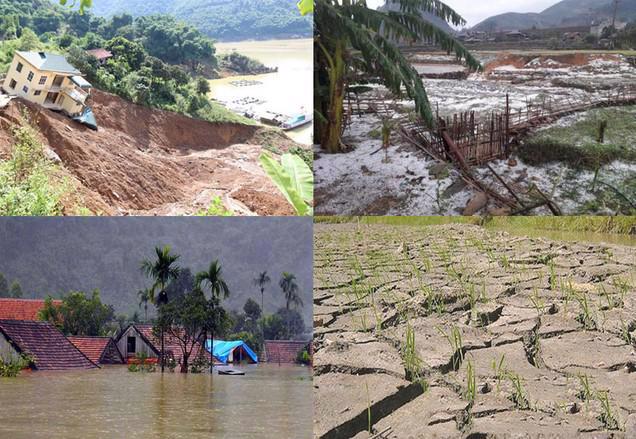The National Plan on Climate Change Adaptation for the 2021-2030 Period, with a Vision to 2050 (updated), was released following a decision signed by Deputy Prime Minister Tran Hong Ha on November 19.
Decision No. 1422/QD-TTg outlines three key groups of tasks and solutions. First, enhancing the resilience and adaptive capacity of natural and socio-economic systems, ensuring sustainable livelihoods. This involves investing in climate change adaptation activities to effectively utilize and prevent the depletion and degradation of resources.
Key actions include developing climate-smart agriculture; protecting and developing forests and ecosystems; developing infrastructure systems; strengthening the healthcare system and healthcare access; and ensuring social security and gender equality.
Second, mitigating natural disaster risks and reducing damages from increasing extreme weather events and climate change, contributing to minimizing losses and damages caused by climate change.
This includes implementing solutions to strengthen the capacity for the early warning and forecasting of natural disasters and extreme weather conditions; improving climate risk assessment and management; and implementing solutions to mitigate natural disaster risks and minimize losses and damages from the short-term, medium-term, and long-term impacts of climate change, ensuring readiness to respond to increasing natural disasters and extreme weather events.
Third, perfecting the institutional framework, leveraging potential and resources for effective climate change adaptation.
This involves strengthening climate change governance, improving institutional frameworks and policies; promoting the integration of climate change adaptation into strategies and plans; promoting mutually-beneficial climate change adaptation activities; raising awareness and community participation in climate change adaptation through communication, training, strengthening scientific research and technological development; and mobilizing financial resources, investments, and international cooperation activities to respond to climate change.
Under the plan, by 2030, the institutional framework, policies, and laws on climate change adaptation will be built and perfected; and the integration of climate change response into strategies and plans will be implemented.
From 2031 to 2050, the plan will continue to strengthen the adaptive capacity of people, infrastructure, and natural systems to protect and improve quality of life, ensuring food security, energy security, water security, gender equality, social security, public health, the protection of natural resources, and sustainable national development in the context of climate change and disaster safety.









 Google translate
Google translate